Kia āriki au i tōku tupuranga, ka ora uatu rai tōku reo
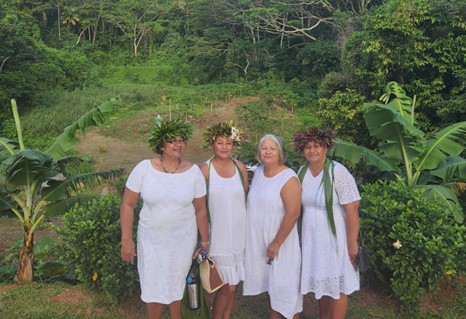
[Left to right] Elizabeth Tou, Fiona Taripo, Ethel Goldsmith and Georgina Daniels (2023), pictured at the 200-year Gospel celebration in Arorangi, Rarotonga.
In Aotearoa, the theme for Cook Islands language week 2023 by the Ministy of Pacific Peoples in Aotearoa is:
‘Ātuitui’ia au ki te au peu o tōku kāinga Ipukarea,
which means,
"connect me to the traditions & culture of my homeland".
Tōku ingoa, Ko Inano Taripo-Walter,
nō Akatokamanava e Tumu-te-varovaro mai au.
E no’o ana au ki Otepoti, Aotearoa.
Hello, I am Inano and I have ancestral roots to Mauke and Rarotonga and I live in Dunedin. I am a current doctoral candidate at the University of Otago in the Centre of Indigenous Science and Te Tumu School of Māori, Pacific and Indigenous Studies.
For many years my mother worked on the factory floor of the confectionary company Cadburys, leaving home at 5am each morning to begin her 10- hour shift. During the late 1980s and early 1990s Cadburys was one of the largest employers for Pacific families in Dunedin. This included many notable Cook Islands families such as the Deans, Mareko’s and Bridgman’s, many which still reside today. Witnessing my mother’s relentless work ethic, her strength and drive motivated me to pursue higher education and learn more about where I come from. In particular the myriad of roles the women in my kopu-tangata (family) held in both formal and informal spaces and their abilities to attain and maintain relationships to ‘enua (land).
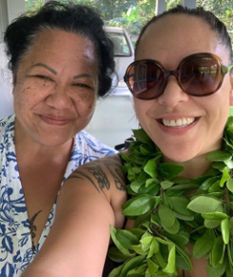
[left to right] Patricia Taripo & Inano Taripo-Walter (2023), Rarotonga
The thesis question that I am investigating is how do va’ine Māori connect to ancestral and diasporic ‘enua and what do these connections tell us about Cook Islands women’s wellbeing. Through a series of semi-structured interviews- both in English and Māori, archival documents, land block files, government records and tua ta’ito (legends) I explore this thesis question to critically assess relationality in the ipukarea (homelands) and Aotearoa. I chose this question because va’ine Māori are pivotal in all land decisions either through strategic marriages, food security, economic empowerment, or tribal boundaries thus making their narratives valuable and important.
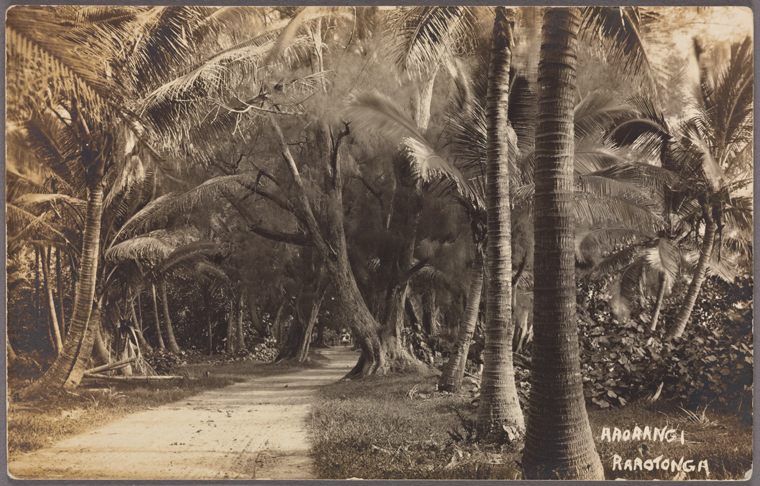
What I have I learnt so far is that women’s relationships to land can look like a plurality of engagements. It can be shared through childhood reflections, through daily physical work, through food gathering and cooking, or through land cases in the Land Court in Rarotonga. It can also look like continued cultural land practises in Aotearoa, for an example the return of the pito ‘enua (placenta) or the decision to bury our loved ones here. Through my research my positionality has played a key role in my identity as a Cook Islands raised va’ine Māori and the way I go about my thesis in both New Zealand and Cook Islands communities.
Embedded content: https://youtu.be/BDA7ZiPKH1M[TITLE: Te au tiare tuketuke e te maire, ei rakei no te au akakoroanga I Akatokamanava PRESENTERS: Ngavaine John, Mii Tararo Pepe, Anne Tungane Apiianga Gardenia-Kaokao, Upokoina Tearikiaua, Tereapii Pupuke-Teariki, Taukare Taripo, Keu Tairea]
In my research journey and my time spent at the National Library of New Zealand I came across an intriguing document. It is a manuscript of a book typed by Stephen Savage with the contents provided by my tupuna (ancestor) Apera Uriarau
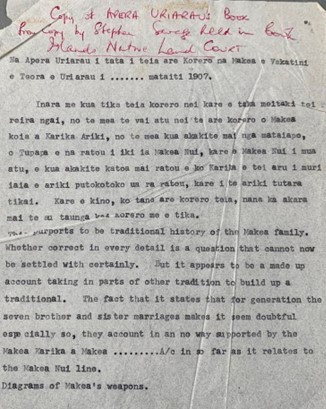
[Papers relating to Cook Islands History; MS-Papers-6717-103;1907-1974]
Makea Apera was my great grandfather x5 and a direct descendent of the Makea clan. To read documents that my tupuna wrote that aligns with my genealogy charts is not just a privilege, but a direct portal to my ancestors worldview during a pivotal time in history- when the Cook Islands became a British Protectorate. These types of documents are crucial in understanding our heritage.
This research is important because it reinstates va’ine Māori back into historiographies which missionaries, ethnographers, and researchers have virtually silenced over the decades. Further to this, this research provides a working framework for understanding more about Cook Islands women’s wellbeing. This research is also intended to inspire the next generation of Māori thinkers to engage in the rich depositories of histories our people have, that connect to the traditions and culture of our homelands.
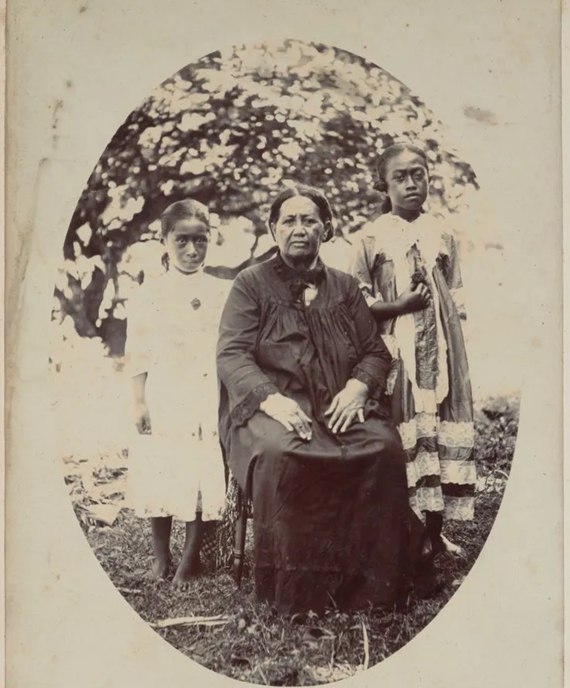
[Tinomana Mereana Solomon]
Kia āriki au i tōku tupuranga, ka ora
uatu rai tōku reo.
To embrace my heritage, so my language lives on.
The author has coined the term va’ine Māori in her thesis to describe all women of Cook Islands ancestry. All comments made by the author that refer to Māori, are in relation to Kuki Airani or Cook Islands people.
Welcome and warm Pasifik greetings
The information on this site has been gathered from our content partners.
The names, terms, and labels that we present on the site may contain images or voices of deceased persons and may also reflect the bias, norms, and perspective of the period of time in which they were created. We accept that these may not be appropriate today.
If you have any concerns or questions about an item, please contact us.